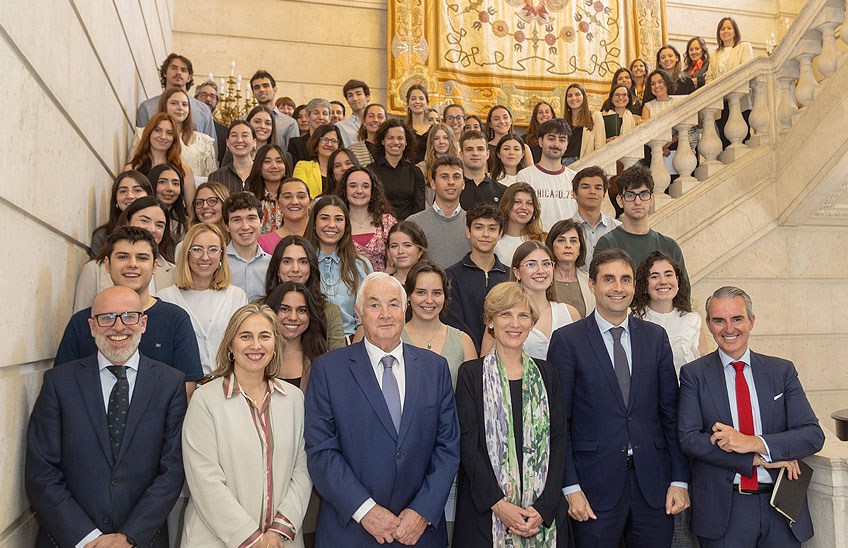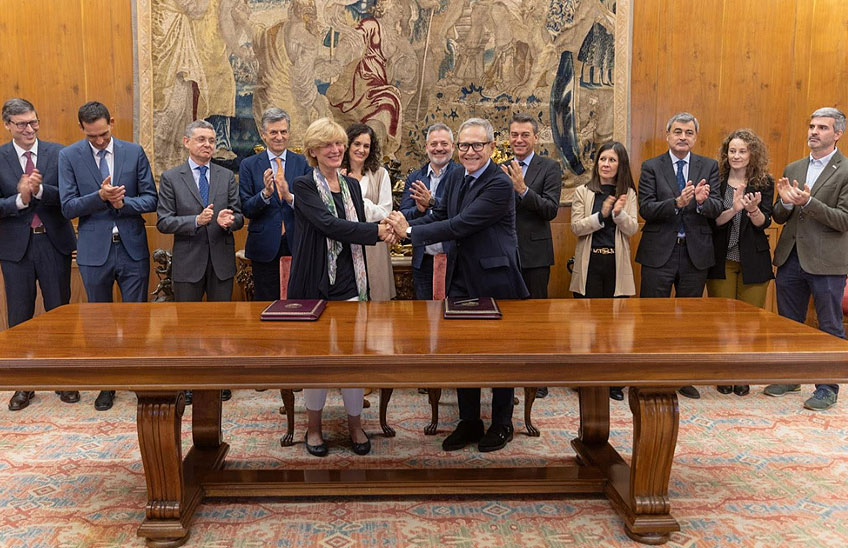International University study reveals that stress in confinement has conditioned self-care, especially among women and youths
The research, carried out with universities in Chile, Ecuador, Colombia and Spain, points out that gender differences may contribute to greater vulnerability of women during the pandemic, due to their role as caregivers.

PhotoManuelCastells/
16 | 04 | 2021
A study from the University of Navarra reveals that, in general, young people and women suffered more stress during confinement and showed less adherence to health guidelines, compared to men and older groups. The research sample how differences between cultures, genders, and age ranges may influence adherence to public health guidelines, perception of stress, and adoption of self-care activities.
According to research, although younger adults perceived status as more serious than older people, they were less compliant with health guidelines. "This could be due to how the pandemic has impacted their status staff ,which ranges from their status work to changes in their lifestyles; rather than with their perception of health risks," explains Elkin Luis, professor at School of Education and Psychology at the University of Navarra and researcher principal.
Among the results of this study, published in the International Journal of Environmental Research and Public Health, is that women, faced with higher perceived stress, tend to engage in fewer self-care behaviors. This would explain why younger women, whose stress levels were high, reported fewer self-care behaviors than older age groups, in which they adopted healthier daily routines than men.
"These gender and age differences in the adoption of a healthy lifestyle are probably embedded in gender role behavior, as women during adulthood acquire more caring behaviors towards others, and therefore develop more self-care tools than men," explains Elena Bermejo, principal investigator and professor at School of Nursing at the University of Navarra .
The research suggests that this differential impact of gender on mental health outcomes goes beyond the status pandemic, and that these gender differences may contribute to greater vulnerability of women: "Not only to the possibility of contracting the virus more easily because of their exhibition, given that the majority of frontline workers are women, but also to experiencing greater mental health problems as a result of their overburdened caregiving role".
The need to adapt messages on health guidelines to younger people
Older people have better adherence to health guidelines, health awareness and other self-care activities. Thus, adults over 60 years of age are more likely to behave in a manager manner with their health than middle-aged and younger people.
Given this fact, they emphasize that general health guidelines are not age-oriented in most countries. "Young people are highly influenced by social norms;it would be essential to adapt health communication to their social identities, which can promote norms and behaviors based on truthful information and disseminated by more in-demand media, such as social networks," they add.
The researchers state that there is a need to include in public health strategies a comprehensive approach of health promotion that includes the relationship between mental health and healthy behaviors, the need to adopt a gender approach in health recommendations, and the importance of improving intersectoral work and community action when it comes to promote and maintaining the physical and mental health of the population during this period.
The project of research 'The role of self-care during confinement', led by Elkin Luis and Elena Bermejo, professors at the University of Navarra; was initiated during the confinement last March 2020; and was carried out at partnership with the University of the Basque Country, University of Malaga, University of development (Chile), University of San Buenaventura (Colombia), and University Francisco de Quito (Ecuador).




